re intrusive thoughts or compulsive behaviors affecting your daily life? Our OCD therapists at Gryzbek Therapy Services are your dedicated partners in the journey towards overcoming Obsessive-Compulsive Disorder (OCD). Our experienced and empathetic therapists specialize in providing personalized OCD treatment, offering a path to lasting relief and improved well-being.
What is OCD?
Obsessive-Compulsive Disorder (OCD) is a condition where someone has repetitive, anxious thoughts that they can’t shake off. To try and feel better, they do certain actions over and over. For instance, if they’re worried about germs, they might wash their hands constantly. It can be really disruptive, but there are ways to manage it with the right help.
What is the difference between obsessions and compulsions?
In OCD, obsessions and compulsions are two key components, but they are different:
- Obsessions are unwanted, intrusive thoughts, images, or urges that repeatedly pop into a person’s mind. These thoughts cause significant anxiety or distress. For example, someone might have an obsessive fear of germs or a persistent worry that something bad will happen.
- Compulsions are repetitive behaviors or mental acts that a person feels driven to perform in response to an obsession or according to strict rules. These actions are meant to reduce the anxiety caused by the obsessions or to prevent something bad from happening. For example, someone might wash their hands repeatedly to feel clean or check the stove multiple times to make sure it’s turned off.
Obsessions are the thoughts causing anxiety, while compulsions are the actions taken to try to alleviate that anxiety.
How common is OCD?
OCD is relatively common. It affects about 1-2% of the global population. This means that out of every 100 people, 1 or 2 are likely to have OCD at some point in their lives. It can occur in both children and adults and affects people of all backgrounds.
Types of OCD
OCD can manifest in various ways, and while each person’s experience is unique, some common types of OCD include:
- Contamination and Cleaning: Fear of germs or contamination leading to excessive cleaning or hand-washing.
- Symmetry and Ordering: A need for things to be symmetrical or in a particular order, often leading to arranging and rearranging objects.
- Checking: Repeatedly checking things (like locks, appliances, or lights) to prevent harm or ensure nothing bad happens.
- Hoarding: Difficulty discarding items, even those with no value, leading to excessive accumulation of possessions.
- Intrusive Thoughts: Unwanted, distressing thoughts or mental images, often of a violent, sexual, or blasphemous nature.
- Ruminations: Prolonged thinking about open-ended questions or philosophical topics, often without reaching a satisfactory conclusion.
- Counting and Repeating: Performing certain actions a specific number of times or repeating activities until they feel “just right.”
These types can overlap, and individuals with OCD may experience symptoms from multiple categories. At Gryzbek Therapy Services, we feel comfortable addressing all of the above mentioned types of OCD.
What causes OCD?
The exact cause of OCD isn’t completely known, but it’s thought to be a mix of different things:
- Genetics: OCD can run in families, so if your parents or siblings have it, you might be more likely to get it too.
- Biology: Differences in the way certain parts of the brain work, especially those related to emotions and responses, can be linked to OCD. Brain chemistry, specifically serotonin, might also play a role.
- Life Experiences: Stressful events, trauma, or big changes in life can trigger or worsen OCD symptoms.
- Infections: Sometimes, infections like strep throat can trigger OCD symptoms.
So, it’s probably a mix of your genes, brain differences, life experiences, and maybe even some infections that lead to OCD.
Common symptoms of OCD
OCD symptoms are typically divided into obsessions and compulsions:
Obsessions:
- Fear of Contamination: Excessive worry about germs, dirt, or illness.
- Harmful Thoughts: Unwanted thoughts about harming oneself or others.
- Symmetry and Order: Intense need for objects to be arranged in a particular way.
- Forbidden or Taboo Thoughts: Intrusive thoughts involving sex, religion, or harm.
- Fear of Losing Control: Worries about acting on an impulse to do something embarrassing or harmful.
Compulsions:
- Cleaning and Washing: Excessive hand-washing, cleaning, or disinfecting.
- Checking: Repeatedly checking locks, appliances, or other things to ensure safety.
- Repeating: Performing actions a certain number of times or in a specific pattern.
- Ordering and Arranging: Needing items to be placed in a specific order or symmetry.
- Mental Compulsions: Repeating certain words, counting, or praying to reduce anxiety.
- Hoarding: Inability to discard items, even those with no real value.
These symptoms can vary in severity and can interfere significantly with daily life.
Treatment for OCD
Evidence based therapies, specifically Cognitive-Behavioral Therapy (CBT), are highly effective in treating OCD. Here’s how it helps:
- Exposure and Response Prevention (ERP): A key part of CBT, ERP involves gradually exposing a person to the source of their anxiety (obsessions) without allowing them to perform their usual compulsive behavior. Over time, this helps reduce the anxiety associated with the obsessions and diminishes the compulsions.
- Cognitive Therapy: This helps individuals identify and challenge distorted thinking patterns that contribute to their obsessions and compulsions. By changing these thought patterns, people can reduce the power of their obsessions.
- Stress Management: Therapy can provide techniques to manage and reduce stress, which often exacerbates OCD symptoms. This can include relaxation techniques, mindfulness, and other coping strategies.
- Behavioral Techniques: These help individuals develop healthier behaviors and coping mechanisms to deal with their OCD.
- Education and Insight: Therapy provides education about OCD, helping individuals understand their condition better. This can reduce feelings of isolation and increase motivation to stick with treatment.
- Support: Regular therapy sessions offer a supportive environment where individuals can discuss their struggles and progress with a professional who understands their condition.
Combining these approaches can significantly improve symptoms and help people with OCD lead more manageable, fulfilling lives. At Gryzbek Therapy Services, we utilize all of the above mentioned techniques to develop an individualized treatment plan to address your OCD concerns.
Why Choose Gryzbek Therapy for OCD?
Expertise in OCD Treatment: Our therapists have extensive experience in treating OCD, utilizing evidence-based approaches such as Exposure and Response Prevention (ERP) and Cognitive-Behavioral Therapy (CBT). Gryzbek Therapy Services is dedicated to helping individuals reclaim their lives from the grip of OCD.
Personalized Treatment Plans: We understand that each person’s experience with OCD is unique. Our therapists work closely with you to develop a tailored treatment plan that addresses your specific obsessions, compulsions, and individual challenges.
Compassionate and Supportive Environment: At Gryzbek Therapy Services, we provide a safe and judgment-free space where you can openly discuss your struggles with OCD. Our therapists are committed to fostering a compassionate and supportive therapeutic relationship to guide you through the healing process.
Holistic Approach: We believe in treating the whole person. Our holistic approach integrates therapeutic techniques that address not only the symptoms of OCD but also the underlying factors contributing to distress, promoting lasting relief and a better quality of life.
Take the First Step Towards Freedom from OCD
Reclaim control over your life with Gryzbek Therapy Services. Contact us today to schedule a confidential consultation and begin your journey towards lasting relief from Obsessive-Compulsive Disorder. Rediscover peace of mind, embrace a brighter future – Gryzbek Therapy Services is here for you.

